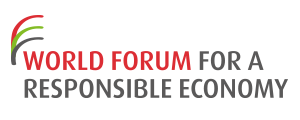The Danone Group, a major player of the agri-food sector, is one of the pioneers of commitment to an approach of corporate social responsibility. The implementation of the Grameen Foods Ltd. project, in 2006, demonstrates this commitment.
The group's strategy, since 2008, is to refocus its activities on "la santé par l'alimentation au plus grand nombre" (health through many foods). Danone seeks to address emerging concerns of consumers, who aspire to live according to their environmental and social values. To strengthen the coherence of this strategy, it is essential that these values are reflected in the internal policy of the company.
Within this framework, led by Franck Riboud, CEO of the group, the executive compensation plan evolved to take into account environmental and social criteria in the calculation of bonuses.



